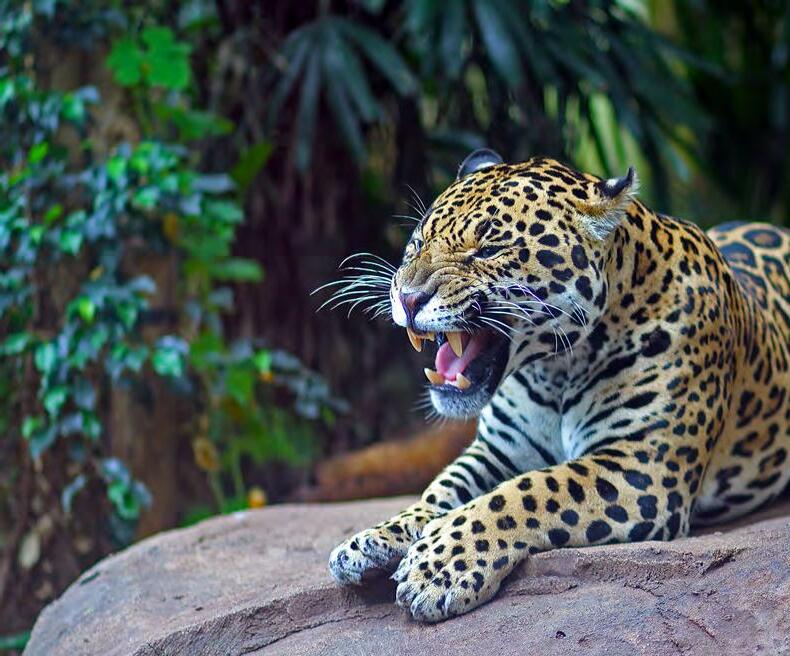
3 minute read
DID YOU KNOW
Amur Leopards The Endangered
By Alexandra Sullivan
Amur leopards are critically endangered. These leopards, which notably run up to 37 miles per hour and are native to Russia and Northern China, might be the rarest of big cats. Amur leopards have been endangered since 1996 due to poaching, habitat loss and the trade of their unique fur.
“Unfortunately [their endangerment] is due to habitat loss— people encroaching on their native habitat to build farms, cities, towns. But also, a big thing is poaching for their skins,” says Christopher Torge, Director of Animal Operations at the Central Florida Zoo. “There’s a large black market for Amur leopard pelts so that’s the main cause of their decline in numbers in the wild.”
While the population of these spotted beauties seems to be steadily increasing with the help of animal conservatories and institutions, only about 100 are left in the wild.
Two Amur leopards call Central Florida their home, just like you and me. Temur and Jilin live at the Central Florida Zoo. Known for his laidback nature and his love for sitting in front of his fan, 5-year-old Temur has called the zoo his home for around two years. Jilin is new to the zoo family and has only been there for around one year. Jilin is 4-years-old and feisty. She loves to pounce and hunt, and she is expected to be a great mother to Amur leopard cubs.
While the two have yet to meet, they’ve shared enrichment toys to become familiar with each other’s scents.
The Central Florida Zoo participates in over 30 species survival programs through the Association of Zoos and Aquariums, according to Elena Lamar, Director of Animal Care at Central Florida Zoo in a video about Amur leopards. The zoo is working with zoos across the world to maintain genetic diversity and keep the species alive.
It is the goal of the Central Florida Zoo to help restore the population to a healthy, stable level. The zoo’s habitat expansion plan laid out its hopes for the future. The zoo wants to formally introduce the male Amur leopard, Temur, to the female Amur leopard, Jilin. This opens the potential for breeding Amur leopard cubs. This means a few more leopards are expected to be brought into the world to help the population of these wild cats grow.
“For an animal here in the United States in other accredited institutions there’s only about 70 Amur leopards, so any leopards we can add to the population here in North America would be fantastic,” Torge says.
The expansion program would create a bigger space for Temur and Jilin and some cubs to live, play and exercise. The Amur leopard habitat has been expanded vertically before by adding a second story, but it’s still not quite roomy enough for both Jilin and Temur yet.
The bigger space will also allow for more area for guests to see these rare cats in action. Guests of the zoo will get a one-of-a-kind opportunity to view the rarest cats in the world from a bigger perspective after the expansion.
By the end of summer 2022, the Central Florida Zoo hopes to have raised $300,000 to make these dreams a reality. The expansion of the exhibit itself will most likely take 6-8 months so the zoo can ensure the safety of these carnivores and the guests that come to see them.
“We are right now consulting with other professionals who have done this before and that way we have done all of our homework and know what to look for,” Torge says. “We hope they’re reproductively healthy and that after we do our introductions, 90 days later we should get 2-3 cubs.”
Amur Leopard day, Aug. 27, 2022, will celebrate how important conservation efforts are for the beautiful and critically endangered Amur leopard. The Central Florida Zoo calls for guests to join on this day to raise awareness and protect these amazing animals from extinction. For more information, visit centralfloridazoo. org/amur-leopard-habitat-expansionproject/.












